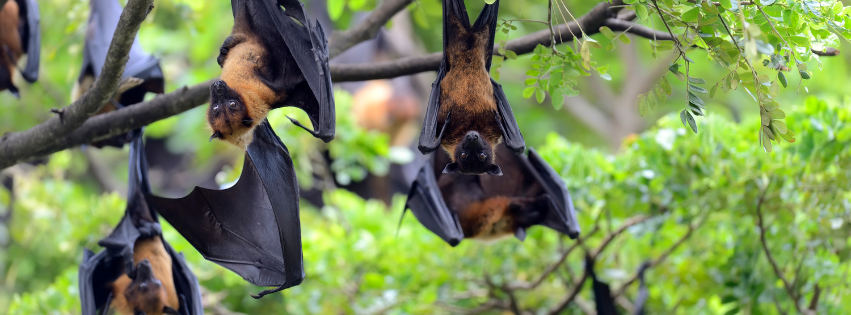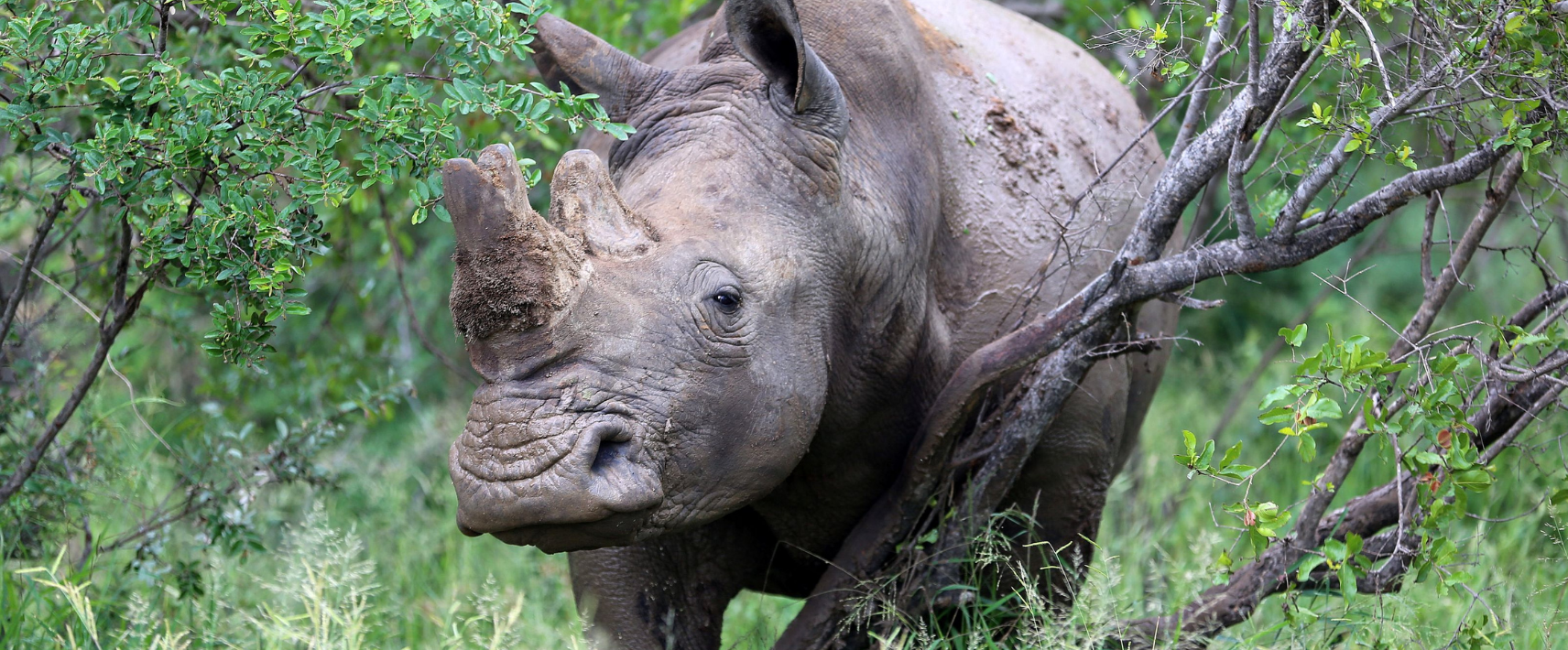SYDNEY (January 6, 2026) Humane World for Animals Australia (formerly called Humane Society International) has criticised the Crisafulli Government’s decision to reverse the former government’s phase-out of shooting flying foxes for crop protection. The animal protection charity says the move seriously undermines progress toward effective non-lethal management and brings back...
Humane Society International urges governments to close mink farms in all countries
The Dutch government ordered the culling of thousands of mink on nine fur farms from Friday last week, following advice from a team of veterinary and infectious disease experts that mink fur farms could act as a reservoir for SARS-COV-2, allowing it to remain in circulation for a long time.
Dutch MPs were notified of the cabinet decision in a letter sent by the Dutch Agriculture Minister and the Minister for Public Health, Welfare & Sport. The investigation by the Dutch Zoonoses Outbreak Management Team follows the Dutch Agriculture Minister’s statement on 25th May that it was ‘extremely likely’ that two fur farm workers in the Netherlands had contracted COVID-19 from mink infected with SARS-CoV-2.
In response to the Dutch government’s findings, animal protection group Humane Society International is calling for the global closure of mink fur farms as potential breeding ground for COVID-19 and other novel infectious zoonotic diseases. An estimated 60 million mink are farmed for their fur in 24 countries around the world, with the top three production countries China (20.6million mink), Denmark (17.6million mink) and Poland (5 million mink) in 2018.
Speaking from Amsterdam, Dr Joanna Swabe, Senior Director of Public Affairs for animal protection group Humane Society International/Europe, said: “The intensive cage confinement of animals on fur farms has always been a potential breeding ground for infectious diseases, and confirmation that mink on Dutch fur farms have infected workers with COVID-19 exposes yet another reason to close this cruel and entirely unnecessary industry. Fur farms typically contain thousands of mink in rows of cages in unsanitary, crowded and stressful conditions not unlike the wildlife markets at the centre of global concern. In addition to fur factory farming being inherently cruel, the potential for zoonotic disease spread, and for mink fur farms in particular to act as reservoirs for coronaviruses, incubating pathogens transmissible to humans, is an unavoidably compelling reason for the world to call time on fur farming and for all fashion companies to go fur-free. The Netherlands’ deadline of 2024 for phasing out mink fur farms simply provides three and a half more years of unnecessary risk. The Dutch government, and all fur-producing countries like Denmark, Poland, France, Italy, China, Finland, Spain and the United States, should commit to end this inhumane practice and protect public health. ”
The Ministers’ letter to the Dutch Parliament notes that more infections are expected to be detected in the coming weeks, and that as human-human infection rates decline, mink-human infection could increase the incidence of SARS-CoV-2 in humans. All fur farms in the Netherlands are now undergoing mandatory screening, and measures have been put in place including a restriction on both farm visitors and the transportation of mink. Cordons were put in place around the infected farms, and residents advised not to go within 400 meters of the farms. Initial tests confirmed that virus particles had been found in the dust of some of the mink sheds.
Non-infected farms will be required to continue to follow current measures and to submit carcasses of “naturally” deceased animals each week. Mandatory testing of all Dutch mink farms is in progress and the results are due from those tests next week.
Mink fur farming was banned in the Netherlands in 2013 with a deadline for complete phase out by 2024. The Netherlands farmed around 4.5million mink in 2018. HSI is supporting calls by Dutch animal organisations for the closure of the approximately 128 fur farms that remain to be fast tracked in light of the COVID-19 risk. The Ministers’ letter states that the Dutch cabinet is considering whether and how to support fur farms to voluntarily terminate their businesses before the 2024 deadline.
Image Oikeutta Elaimille
Georgie Dolphin, Program Manager for Animal Welfare at Humane Society International/ Australia, said: “The potential for fur farms to spread infectious disease is just another entry in a long list of reasons why the breeding of animals for fur must stop. The sale of animal fur across the globe must end for both our safety and for the welfare of animals that are bred to fuel this cruel trade. Here in Australia, a growing number of brands and retailers are rejecting fur in their product offerings and consumers can use the Fur Free Retailer List on our website to ensure they don’t support brands who profit from the horrific fur industry.”
Mink fur farms and COVID-19 timeline
- 26 April: SARS-CoV-2 identified on two mink farms in Netherlands.
- 9 May: SARS-CoV-2 found on two more mink farms in Noord Brabant as well as in dust particles in the barns in which they are kept in.
- 15 May: SARS-CoV-2 diagnosed in three cats living at a mink farm where the presence of the virus was detected.
- 19 May: First farm worker reported to have contracted COVID-19; Minister confirms compulsory screening is extended to all mink farms in the Netherlands.
- 20 May: Dutch Agriculture Minister Carola Schouten tells MPs it is likely mink infected with SARS-CoV-2 passed the virus to a worker.
- 22 May 2020: Seven of 14 employees of a mink farm in La Puebla de Valverde (Spain) test positive for SARS-CoV-2.
- 25 May: A second farm worker contracts COVID-19, Minister confirms transmission from mink to humans now “extremely likely.”
- 28 May: Ministers’ confirm mandatory screening of all Dutch mink farms is underway.
- 1 June: SARS-Cov-2 found on another three mink fur farms in the Netherlands, with a fourth case confirmed on 3 June bringing the total to nine farms.
- 3 June Dutch Ministers publish final report confirming animals on the infected farms will be culled, a measure taken “in the interests of both public and animal health”.
The other main species reared on fur farms – foxes and raccoon dogs – are known to be able to become infected with SARS-CoV-related viruses, with the potential to act as intermediate hosts to pass viruses to humans. Raccoon dogs and foxes in wildlife markets in China were both found to have been infected with SARS-CoV.
Fur farming has been banned across the UK since 2003, and has been prohibited and/or is in the process of being phased-out in the following European countries: Austria, Belgium, Bosnia and Herzegovina, Czech Republic, Croatia, Macedonia, the Netherlands, Norway, Luxembourg, Serbia, Slovakia, Slovenia, and most recently the government in Ireland has committed to ending fur farming. Bulgaria, Lithuania, Montenegro and Ukraine are also presently considering bans on fur farming. In the United States, California became the first US state to ban fur sales in 2019 following similar bans in cities including Los Angeles, San Francisco, Berkeley and West Hollywood. In 2020, legislators in Hawaii and Rhode Island introduced fur sales ban proposals, as have cities in Minnesota and Massachusetts.
Fur farming, however, continues in other countries with China, Denmark, Finland and Poland being the biggest producers, and globally an estimated 100 million animals are killed annually for their fur.
Download: video of mink farms in the Netherlands (courtesy of Dutch organisations Bont voor Dieren and Animal Rights): https://vimeo.com/194246126
Notes
Latest available figures show approximately 35 million mink were farmed in 2018 in Europe, including Denmark (17.6m), Poland (5m), Netherlands (4.5m), Finland (1.85m), Greece (1.2m) and Lithuania (1.2m). Figures for the same period show that mink were farmed for their fur in China (20.7m), the United States (3.1m) and Canada (1.7m), bringing the total to approximately 60million mink globally on fur farms


